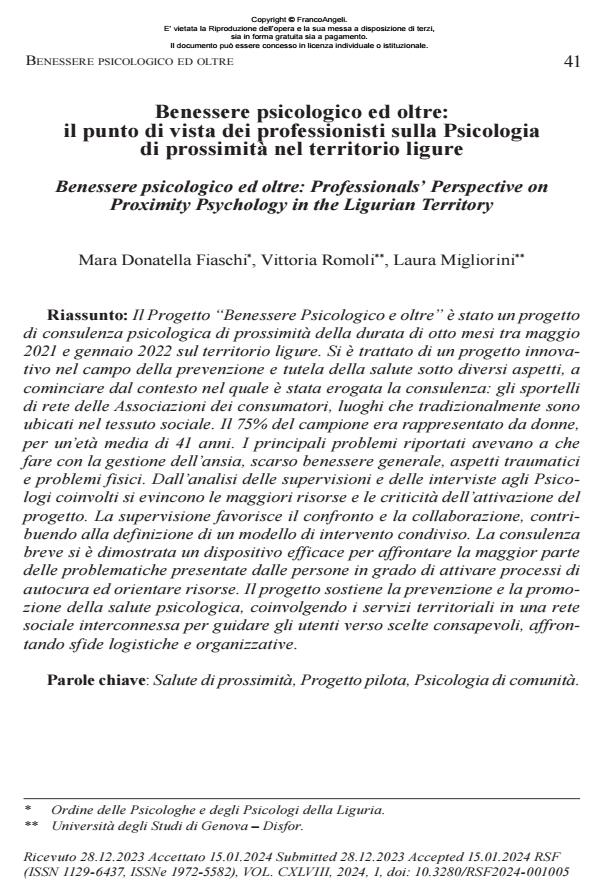Benessere psicologico ed oltre: Professionals’ Perspective on Proximity Psychology in the Ligurian Territory
Journal title RIVISTA SPERIMENTALE DI FRENIATRIA
Author/s Mara Donatella Fiaschi, Vittoria Romoli, Laura Migliorini
Publishing Year 2024 Issue 2024/1
Language Italian Pages 16 P. 41-56 File size 658 KB
DOI 10.3280/RSF2024-001005
DOI is like a bar code for intellectual property: to have more infomation
click here
Below, you can see the article first page
If you want to buy this article in PDF format, you can do it, following the instructions to buy download credits

FrancoAngeli is member of Publishers International Linking Association, Inc (PILA), a not-for-profit association which run the CrossRef service enabling links to and from online scholarly content.
The project “Benessere Psicologico e oltre” was a local psychological counseling initiative lasting eight months from May 2021 to January 2022 in the Liguria region. It was an innovative project in the field of health prevention and protection, starting with the unconventional coun- seling setting: consumer association network offices, traditionally located in the social fabric. The sample consisted of 75% women, with an average age of 41. Reported issues included anxiety management, general well-being, trau- ma, and physical problems. The analysis of supervisions and interviews with psychologists revealed strengths and challenges in project implementation. Supervision among psychologists facilitated collaboration, contributing to a shared intervention model. Brief counseling proved effective for various is- sues, promoting self-care processes, and aligning needs and resources. The project aimed to prevent and promote psychological health, involving local services in an interconnected social network to guide users’ psychological health, toward informed choices, addressing logistical and organizational challenges.
Keywords: Proximity Health, Pilot Project, Community Psychology.
Mara Donatella Fiaschi, Vittoria Romoli, Laura Migliorini, Benessere psicologico ed oltre: il punto di vista dei professionisti sulla Psicologia di prossimità nel territorio ligure in "RIVISTA SPERIMENTALE DI FRENIATRIA" 1/2024, pp 41-56, DOI: 10.3280/RSF2024-001005